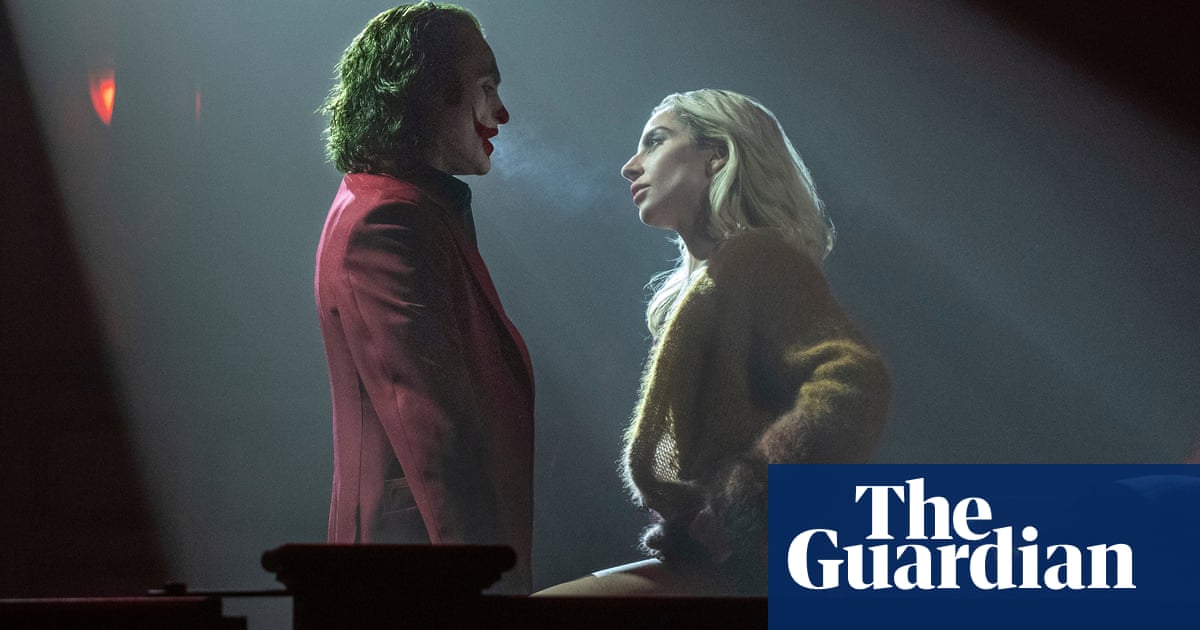To quote Heath Ledger’s version of the clown prince of crime, maybe some wag should be scrawling “Why so serious?” on glass-fronted offices at Warner Bros Discovery this week, as executives there contemplate the box-office implosion of Joker: Folie à Deux. A catastrophic $37.7m opening weekend, the largest second-weekend drop for a DC film (81%), a worldwide take currently standing at a piddling $165m … how has the studio gone from the 2019 original, a billion-grosser that was then the highest earning R-rated film, to this?
…
With bubonic word of mouth, Joker: Folie à Deux is now projected to lose $125m-200m, depending on whose budget estimate you believe. If it’s the $300m figure being generally touted for production and marketing, then this is clearly what has hobbled the film; it would leave it needing as much as $475m to break even. Risky reinventions of hallowed pop-cultural icons are a lot more feasible on the first film’s sensible $60m budget.
$300m is a shocking amount. The money is up on the screen in the sense that director Todd Phillips and star Joaquin Phoenix were both paid $20m and supporting actor Lady Gaga $12m; over a quarter of the $200m production budget. But other than beautiful lighting and cinematography, and the climactic sequence, the film doesn’t look outrageously lavish. A cloistered affair set largely in Arkham State Hospital and the courtroom, there’s virtually nothing in the way of extended CGI pyrotechnics to explain the spend. The likeliest explanation is that it was a big bet born out of pandemic desperation for a surefire hit when cinemas reopened.
…
Phillips evidently wanted to course-correct after accusations that he had indulged toxic fandom in the first film. Having Arthur Fleck definitively dismiss the Joker as a pathetic psychological crutch certainly gets his point across.
But chastising the fanbase so openly is tantamount to box office self-harm (probably why the director refused to test-screen Joker: Folie à Deux). The impunity of a $300m budget seems to have led Phillips to mistake this for an auteur film, and shooting during a period of regime change at both Warner and DC reportedly allowed him to operate with weak oversight. According to Variety, he refused to liaise with new DC heads James Gunn and Peter Safran, saying: “With all due respect to them, this is kind of a Warner Bros movie.” But he also pushed back on new Warner president David Zaslav’s suggestions for lowering the budget, including moving the shoot to London rather than Los Angeles.
…
The film’s nosedive will have repercussions for the still-floundering DC and beyond. This kind of overly conceptual punt will surely become verboten in blockbusters for some time, and you wonder if it will force more conservative reimaginings of other returning icons, particularly Bond. It’s another question whether this almighty flop will give pause for thought in Hollywood about squeezing beloved IP until it has no more juice to give. Could Phillips’ sluggishness in converting realism into expressionism be something to do with the fact that this is the fifth major outing for the Joker in just over 15 years?



It’s too good. I’m kind of in the same boat. I have to go looking to see whats out there to know now. I’m basically reliant on paying attention to social media discussions/increased interest or relevance to suspect something new is coming out.